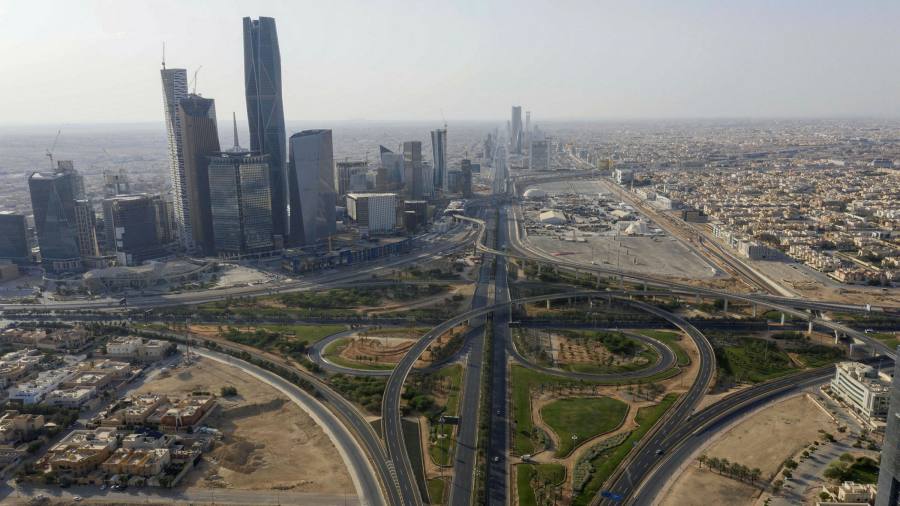[ad_1]
For decades, most top foreign executives popped in and out of Saudi Arabia for business while setting up homes in Dubai as the latter’s more liberal, western-style lifestyle trumped the oil-rich kingdom’s ultra-conservative culture when it came to establishing a regional base.
But now some are worried that their lives, and those of their families, could be upended after Crown Prince Mohammed bin Salman delivered an ultimatum to multinationals: move your regional headquarters to the kingdom or forget about securing prized government contracts.Â
The move, announced in February, is Prince Mohammed’s boldest attempt to accelerate his ambitions to transform Riyadh, the once sleepy Saudi capital, into the premier business and finance hub for the Middle East, Africa and parts of western Asia. Companies have been given three years to adapt to the measure, which will be enforced by entities including “agencies, institutions, and funds owned by the government†and comes into effect at the beginning of 2024.Â
But many executives view it as an attempt to strong-arm global companies to bend to Prince Mohammed’s will and are struggling to work out exactly what it would mean for those that have traditionally preferred to locate their regional headquarters in Dubai, Abu Dhabi or Manama.
“Everyone is freaking out. We are used to governments offering carrots, but this time a big stick has come out of the bag,†said one regional manager of a multinational company. “Frankly, it’s offensive.â€
The manager, one of many courted by Saudi officials in recent months, said companies have spent decades coalescing around Dubai, the main regional trade hub, as the ideal launch pad for the Middle East, Africa and south Asia.
Initially, Prince Mohammed sought to entice companies to move their regional headquarters to Riyadh with incentives that included a 50-year corporate tax holiday and exemption from quotas to hire Saudis under an initiative dubbed “Programme HQâ€. But when the initiative was publicly announced at Prince Mohammed’s flagship investor conference in January only 24 multinationals had provisionally agreed to the move.Â
“My sense is they didn’t get as big a splash as they would like so they have ratcheted it up,†said a Gulf-based executive who does business in Saudi Arabia. “They wanted more like 100.â€

The kingdom does have leverage: it boasts the Middle East’s biggest economy, is the world’s top oil exporter and the government is the prime driver of economic activity and by far the biggest spender. Prince Mohammed also plans to spend hundreds of billions of dollars to modernise the nation and diversify the economy.Â
But Saudi Arabia’s highly conservative culture, in which alcohol is banned, as well as a poorer choice of schools, count against it. Businesses are also wary of Prince Mohammed’s erratic leadership and there is concern about reputational risks, exemplified by the 2018 murder of Jamal Khashoggi by Saudi agents.
The Biden administration last month released a US intelligence report incriminating the Saudi crown prince in the killing of the journalist.
The executive said the initial reaction to the ultimatum was “panicâ€. “Then as it started to sink people started saying I don’t really know how this operates, what this means, and I don’t know how to implement it, because you have to define HQ.â€Â
Some executives suggest that companies may simply label an office in Riyadh a “headquarters†but Khalid al-Falih, investment minister, told Arab News, a Saudi paper, that “a superficial nameplate saying ‘this is the regional headquarters’ will not flyâ€.
Falih said state contracts would be awarded only to those companies that “have their entire integrated operations here in the kingdom, from the decision making to the strategic development, to manage the execution of those government contractsâ€.

In Dubai, officials anticipate greater competition from its far larger and wealthier neighbour. Officials cite attractions such as the United Arab Emirates’ leading position as a hub and recent reforms, such as foreigners being able to own 100 per cent of onshore businesses and the granting of long-term residency to the most-valued expatriate workers.
“When we hear someone is competing with us, it shows that we have done well,†said Majid Saif Al Ghurair, chairman of the Dubai Chamber of Commerce and Industry. “We all have to try to stimulate our economies — Saudi is in a changing mood and we are more than happy for them to grow as we will all benefit,†he said.
For their part, Saudi officials are highlighting their $220bn plans to revamp Riyadh, as well as social reforms that have led to cultural, music and sports events being held in the capital, and promise that more international schools will move to the kingdom.Â
“This concept of Saudi Arabia as a place where I make a lot of money then I leave and spend it all elsewhere, it’s not like that any more, doesn’t fit with the kingdom’s strategy any more,†the Gulf-based executive said.
“The Saudi government is the biggest spender of any entity across the region, so you have to follow the money. You will probably have some takers on this request, but will take a long time for people to move their lives from the UAE to Riyadh because of the lifestyle.â€
Another Dubai-based executive was more blunt: “I’ll give you three letters for the chance of us moving to Riyadh: NFW.â€
[ad_2]
Source link






